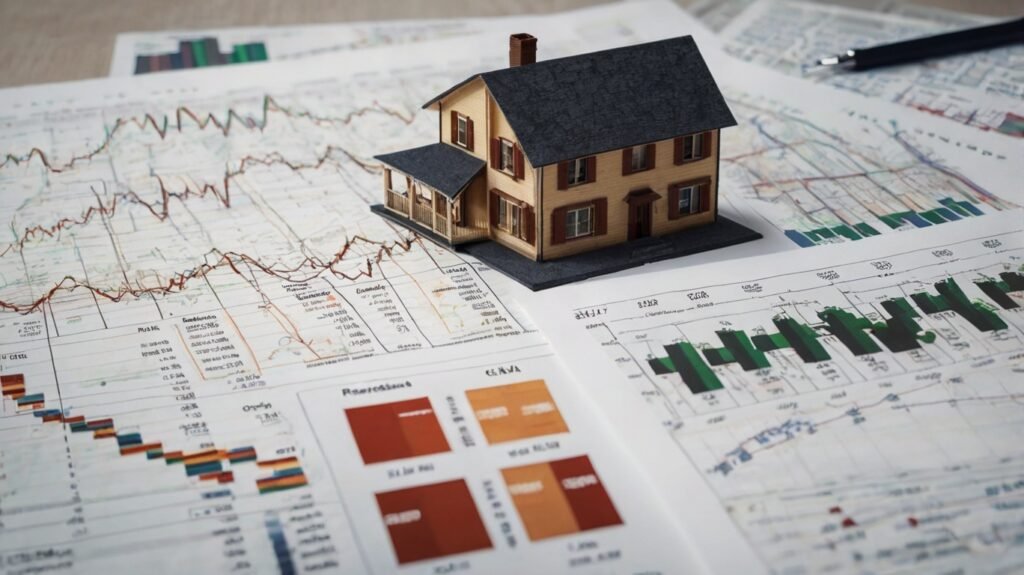Finding great real estate deals can feel like hunting for a needle in a haystack, but with the right strategies and tools, it becomes a lot easier. Whether you’re a first-time homebuyer or a seasoned investor, knowing how to find and evaluate the best real estate deals is crucial. In this guide, we’ll walk you through the process step-by-step, offering practical tips and insights to help you make informed decisions.
Understanding the Real Estate Market
What is the Real Estate Market?
The real estate market encompasses the buying, selling, and renting of properties. It’s influenced by various factors including economic conditions, interest rates, and local supply and demand.
Why Market Knowledge is Crucial
Understanding market trends and local conditions helps you identify opportunities and avoid potential pitfalls. It’s like knowing the lay of the land before embarking on a treasure hunt.
Setting Your Budget and Goals
Determining Your Budget
Before diving into the real estate market, establish a clear budget. This includes not just the price of the property, but also additional costs such as closing fees, property taxes, and maintenance.
Defining Your Goals
Are you looking for a family home, a vacation property, or an investment? Your goals will shape your search and help you focus on the properties that meet your criteria.
Researching the Neighborhood
Evaluating Neighborhoods
Research different neighborhoods to find areas that meet your needs. Consider factors like safety, school quality, and proximity to work or amenities.
Using Online Tools
Leverage online platforms like Zillow or Realtor.com to compare property values and neighborhood statistics. These tools provide valuable data that can aid in your decision-making.
Utilizing Real Estate Agents
Finding a Reliable Agent
A good real estate agent can be your best ally. Look for agents with experience in your area and a track record of successful transactions.
Working with Agents
Communicate your needs clearly and ask for their insights on the market. They can offer valuable advice and potentially uncover deals you might not find on your own.
Exploring Foreclosures and Auctions
Understanding Foreclosures
Foreclosed properties are those that have been repossessed by lenders due to non-payment. They can often be bought at lower prices, but they may also come with hidden issues.
Attending Auctions
Real estate auctions can present opportunities to buy properties at a discount. However, they require quick decision-making and often come with less time for inspection.

Analyzing Property Listings
What to Look For in Listings
Pay attention to the details in property listings, such as price history, days on the market, and the condition of the property. This information can help you gauge if a deal is good.
Red Flags to Watch For
Watch out for red flags like unusually low prices or vague descriptions. These could indicate underlying problems with the property.
Networking and Word of Mouth
Leveraging Your Network
Sometimes the best deals come from personal connections. Let friends, family, and colleagues know you’re looking for real estate opportunities.
Joining Local Real Estate Groups
Participate in local real estate meetups or online forums. Networking with other investors or buyers can provide insider information on potential deals.
Evaluating Property Value
Conducting a Comparative Market Analysis (CMA)
A CMA helps you determine a property’s market value by comparing it to similar properties that have recently sold in the area.
Getting a Professional Appraisal
For a more accurate valuation, consider hiring a professional appraiser. They can provide a detailed report on the property’s worth.
Inspecting the Property
Importance of a Home Inspection
A thorough home inspection can reveal hidden issues such as structural problems or outdated systems. It’s a crucial step to avoid unexpected repairs.
What Inspectors Look For
Inspectors will check everything from the foundation to the roof. Make sure to attend the inspection to ask questions and understand the property’s condition.

Understanding Financing Options
Types of Mortgages
Explore different mortgage options, such as fixed-rate or adjustable-rate mortgages, to find the best fit for your financial situation.
Getting Pre-Approved
A mortgage pre-approval can strengthen your position when making an offer and give you a clear idea of how much you can borrow.
Making an Offer
Crafting a Competitive Offer
When making an offer, consider factors like the property’s market value and the seller’s situation. A well-crafted offer can increase your chances of success.
Negotiating Terms
Be prepared to negotiate on price, closing costs, and other terms. Flexibility and understanding the seller’s needs can lead to a better deal.
Closing the Deal
The Closing Process
The closing process involves finalizing the sale, including signing documents and transferring funds. It’s the final step before you officially own the property.
Common Pitfalls
Watch out for common pitfalls during closing, such as last-minute changes or unexpected fees. Review all documents carefully before signing.

Investing in Real Estate
Types of Real Estate Investments
Consider different investment options like rental properties, commercial real estate, or real estate investment trusts (REITs) based on your goals.
Managing Rental Properties
If you choose to invest in rental properties, think about property management. Effective management can maximize your returns and minimize stress.
Staying Informed
Following Market Trends
Keep up with market trends and economic indicators that can affect real estate values. Staying informed helps you make timely decisions.
Continuing Education
Consider taking real estate courses or attending workshops to expand your knowledge and stay current with industry developments.
Conclusion
Finding the best real estate deals requires a combination of research, strategy, and persistence. By understanding the market, setting clear goals, leveraging resources, and staying informed, you can uncover valuable opportunities and make smart investment decisions. Remember, the right approach can turn a challenging search into a rewarding experience.
For further reading, you might find these articles helpful:
- Understanding Real Estate Appraisals
- Real Estate vs. Stocks: Which Investment is Better?
- How to Evaluate Real Estate Market Conditions
FAQs
- What is a Comparative Market Analysis (CMA)? A CMA is a report that compares a property with similar properties that have recently sold to determine its market value.
- How can I find good neighborhoods for investment? Research neighborhoods using online tools, consider factors like crime rates and local amenities, and consult with real estate agents.
- What are the risks of buying foreclosed properties? Foreclosed properties may have hidden issues or require extensive repairs. A thorough inspection is crucial before making a purchase.
- How do I know if a real estate deal is worth pursuing? Evaluate the property’s condition, market value, and potential return on investment. Consulting with experts and conducting detailed research can help.
- What should I look for in a property inspection? Inspect the property’s structure, systems, and overall condition. Pay attention to signs of damage or required repairs to avoid unexpected costs.
